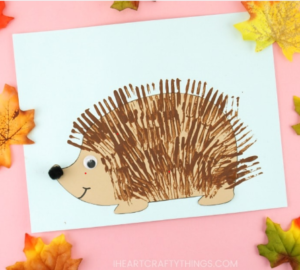Self-Care for Parents: Essential Strategies for Family Well-being
You’re working hard, take a moment for yourself
Dear parents and caretakers of young children, you’re doing great. Keeping up with everything can be a dizzying task- much like taking care of children under the age of five, as they’re always learning, changing, and moving! We’re offering a few ideas on how to practice self care for parents while simultaneously strengthening your family and supporting your little one’s development.
Tell Your Story
Sharing family experiences, your own challenges and successes, is beneficial in many ways. This kind of storytelling teaches children how to celebrate life’s ups and overcome the downs. It builds self- awareness, helping them understand their own character and feelings, and promotes confidence and well-being. PBS Parents has put together questions to encourage thoughtful answers, lessons for kids 2 to 8, games to play together, self-led activities and printables that are all geared toward building self-awareness.
Just for You
As a caregiver, it is essential to take time for yourself. Even when it seems the days are too full and schedules too busy, it is important to pause and practice parent self-care as a benefit to you and an example for your child. Some simple exercises include practicing mindfulness and getting enough sleep. Other types of self-care include spending time with friends or family, Facetime or Zoom them if needed, or taking a stroll outside.
Self – Care for Parents: Vital for Family Health
Investing in self care for moms and dads is as crucial as providing for your children. It’s similar to the advice given on airplanes: secure your own oxygen mask before assisting others. Self-care rejuvenates your energy, allowing you to be more present and supportive as a parent. Simple actions like taking a quiet moment with a cup of tea, enjoying a relaxing bath, or engaging in a brief meditation can significantly enhance your daily parenting experience.
Physical and Emotional Replenishment
Physical activities like yoga, walking, or family exercises not only boost your health but also set a positive example for your children about the importance of maintaining physical wellness. Emotionally, taking time to connect with friends or enjoying a few moments of solitude can help you recharge. Managing your emotional health through self-care practices teaches your children the importance of emotional resilience.
Time Together
Modeling self-care activities and sharing stories is also a great bonding tool for your family. Download “The Things We Do Together” worksheet from Sesame Street in Communities to write the story of all that you do together: meals, routines, special moments, whatever you would like. Reading it together weekly will solidify precious memories and build a sense of security for your family.
 If crafts are a part of your “things we do together” consider this hedgehog one. We’re pretty sure that hedgehogs are one of the cutest animals out there and this is a great one for kids of all ages. You will need just three items: paper plate, brown paint, and a fork. I Heart Crafty Things has the hedgehog template to get you started. Try it, or one of their other hedgehog themed projects here.
If crafts are a part of your “things we do together” consider this hedgehog one. We’re pretty sure that hedgehogs are one of the cutest animals out there and this is a great one for kids of all ages. You will need just three items: paper plate, brown paint, and a fork. I Heart Crafty Things has the hedgehog template to get you started. Try it, or one of their other hedgehog themed projects here.
Integrate Self-Care Into Daily Life
Make parent self-care a daily ritual. It doesn’t need to be time-consuming or elaborate. Start with a commitment to dedicate at least 15 minutes a day to your well-being. Whether it’s reading a book, journaling your thoughts, or simply sitting quietly before the day begins, these moments can have profound effects on your overall family dynamics.
By incorporating these strategies, you demonstrate the importance of self-care to your children, promoting a balanced and healthy lifestyle that benefits the entire family. Embrace these moments for yourself—they are good for you and essential for your family’s well-being.
